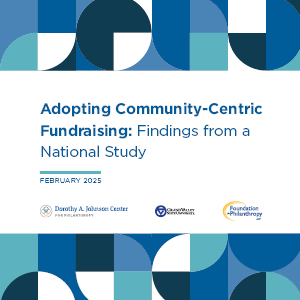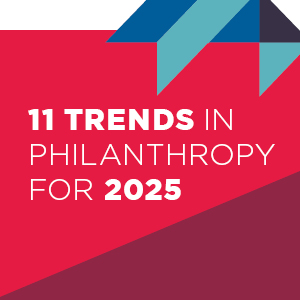Donor Anonymity Is Under the Microscope
Many question the influence of anonymous donors on research priorities, policy questions, institutional reputations, and more — and whether stakeholders have the right to know who is behind these resources.


















Many question the influence of anonymous donors on research priorities, policy questions, institutional reputations, and more — and whether stakeholders have the right to know who is behind these resources.
Research demonstrates how Black women and other leaders of color are grappling with pay inequities, unrealistic expectations from boards and staff, and a generalized lack of support in their positions in philanthropy.
Our 2024 Trends report examines topics including AI the nonprofit workplace, the glass cliff crisis among leaders of color, fiscal sponsorship, AAPI community philanthropy, the rise of influencer philanthropy, and more.
The U.S. Census Bureau has proposed updating and expanding federal protocols for collecting data on race and ethnicity. If adopted, the changes will impact nonprofits, foundations, and more.
Recent research illustrates the undeniable rise of funder collaboratives. These new partnerships are a starting point for change — and for moving hundreds of millions of dollars.
The U.S. Congress appears increasingly interested in philanthropy’s spending habits — from donor-advised funds and foundation payout rates to the influence and reach of wealthy individual philanthropists.
Methods for holding a nonprofit accountable — for their actions, fiscal choices, community relationships, etc. — have not always been clear, accessible, or publicized. That seems to be changing now.
As journalism’s traditional business model continues to stumble, many for-profit news outfits — legacy brands and 21st-century digital natives alike — are moving to explore, adapt, and adopt the nonprofit model.
As more nonprofits and funders look to further their impact and sustainability, power and equity are at the center of a growing movement to reimagine the language and practices of capacity building.
As the frequency of natural disasters increases dramatically, philanthropic actors are rethinking how they engage over the long term to support community resilience, ecological health, and a justice-focused response.